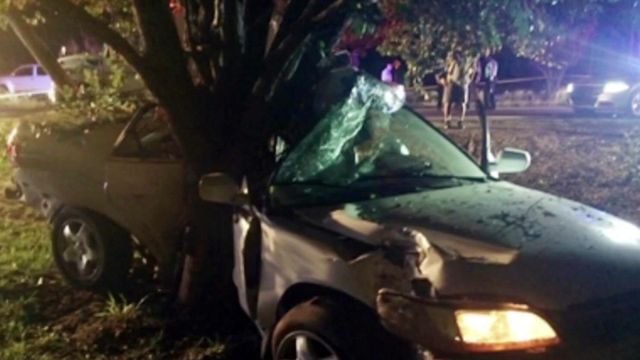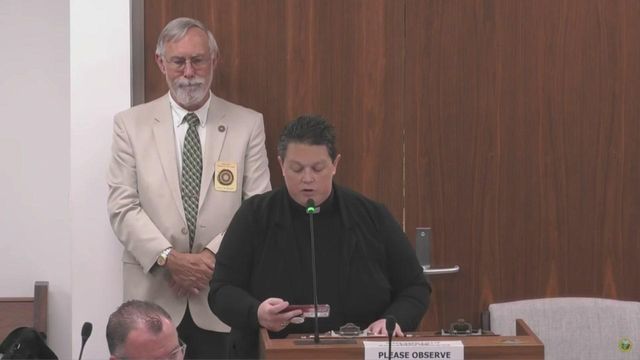Trooper exceeded Highway Patrol guidelines when chase ended in fatal crash
A State Highway Patrol trooper was going faster than agency policy allows when he forced a car he was pursuing to spin out last month, killing the driver.
Authorities say 22-year-old Shonquelle Barrett tried to avoid a Booze It and Lose It checkpoint in Southern Pines on June 29, prompting Sgt. James Stahl to give chase.
A crash report obtained by WRAL Investigates shows Stahl and Barrett were both driving 80 mph on U.S. Highway 1 in Aberdeen when Stahl used a precision immobilization technique, or PIT maneuver, to stop Barrett. The move involves bumping a rear fender of a fleeing vehicle to cause it to spin out.
Barrett lost control of his 1999 Honda Accord, and it skidded off the highway and clipped a utility pole before slamming into a tree at 50 mph, according to the report. He was pronounced dead at the scene.
"To see he was going that fast, it just did something to me," Barrett's mother, Charlene Ross, said Thursday.
Ross was on the phone with her son during the chase, trying to persuade him to pull over.
"I've never heard someone so frightened in my life," she said, noting that Barrett was worried about being arrested because he had a revoked license, no insurance and an expired tag.
The Highway Patrol's police prohibits PIT maneuvers at speeds above 55 mph unless a trooper thinks the fleeing driver has committed a violent crime or other circumstances exist that warrant the use of deadly force.
WRAL Investigates found Barrett was not wanted for any violent felonies.
Patrol officials declined to comment Thursday, stating the State Bureau of Investigation is still reviewing the case.
Stahl remains on administrative duty.
"It was intentional to do that knowing, at that rate of speed, [it] will cause some damage and somebody will be seriously hurt," Ross said. "That made me mad when I found that out."
- Family wants law changed after man killed in high-speed chase
- Use of PIT maneuver in fatal Moore County crash raises questions
Professor Geoffrey Alpert, an expert in police chases and use of force in the Department of Criminology and Criminal Justice at the University of South Carolina, said pursuit policies have changed drastically over the past 30 years.
"In the 1980s, we started worrying about officer safety, in the 1990s, we started worrying about public safety, and now we're seeing in a lot of departments that the trend has been for a long time to restrict pursuits to violent crimes," Alpert said.
Alpert routinely advises law enforcement departments across the country and said the decision to chase is difficult.
"There are all sorts of questions that you got to deal with. Do you just let him go and hope that he slows down and doesn't hit someone else? I mean, those are tough questions," he said.
WRAL Investigates found state troopers have used PIT maneuvers to end chases more than 260 times since 2015, peaking at 112 times two years ago.
One of those incidents took place outside of Charlotte, when a trooper caused a van to flip multiple times. Three of the van’s four passengers, all teenagers, were thrown from the vehicle, and two died.
Three months later, the Highway Patrol changed its policy on PIT maneuvers, including adding the speed limit restriction.
Police departments in Raleigh and Fayetteville both prohibit officers from using PIT maneuvers, and the Durham Police Department restricts it to extraordinary conditions that meet the department's use-of-force guidelines.
All three departments, as well as the Highway Patrol, have thorough rules on the chain of command during chases, how many units can take part and factors law enforcement should consider when deciding whether to chase.
Law enforcement agencies in California are widely known for police pursuits, but they forbid bumping a fleeing vehicle at speeds above 35 mph – 20 mph slower than the Highway Patrol's policy.
"My son wasn't given a chance," said Ross, who is lobbying to have high-speed chases banned in North Carolina. "He's not hear to speak, so I am his voice, and that's why I want the law changed."











